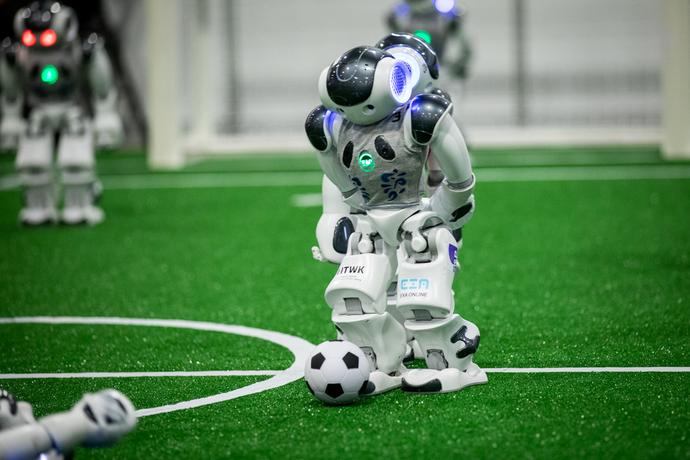Without giving many details on the technical dimension of his work, Peter Stone, president of RoboCup and professor of computer science at the University of Texas at Austin (United States), sees in any case a “widely attainable” mission. “Thirty years is a long time in terms of technology. A lot of things can happen during that kind of time,” he says with an assurance imbued with technological solutionism. Similarly, Mahtab Sarvmaili, a member of the Cyrus robot team and a computer science student, considers "completely possible" not only the victory of a team of robots against a human team in the near future, but also the "generalization of this kind of “robotic sports practices”.

Physical and mental skills
For her part, researcher Sandra Wachter, a robotics teacher at Oxford University, is much more reserved, in particular because football requires, she says, “both physical and mental skills”. “On a football pitch, there are game strategies and formations to follow, which often have to be adjusted very quickly and spontaneously, she analyzes (…) An opening for a goal opportunity can occur in a few seconds , and seizing this moment requires acting very quickly. Very often, this requires a healthy dose of intuition, trust, non-verbal and verbal communication between team members. Understand: as many ingredients as the robots assembled by the RoboCup teams are still far from having acquired.
Another challenge, according to the specialists interviewed by the BCC: to manage to “keep the attention of the public” once “the machines have reached this stage where they can compete with humans”. Example cited by Peter Stone: if the general public was captivated by the victory of the IBM computer Deep Blue against the world chess champion Garry Kasparov in 1997, few people today follow such matches between humans and machines. . “There's always a buzz when the AI research community is close to reaching human level in any field. There's a lot of fanfare around that moment but, right after that, it tends to become less interesting [for people],” he laments.
As a reminder, in 2016, the program developed by Google AlphaGo also beat several go game world champions. Thanks to his use of the technique known as "deep learning" (automatic learning), he even became the world's number one go player in the Go Ratings ranking, ahead of the Chinese Ke Jie, who consoled himself at the time by remaining number one. in the “human” subcategory.










Farewell Touch Bar, I won't regret...
Caddy, the only web server to use H...
Burkina Faso / Gabon (TV / Streamin...
What the future of work will not b...